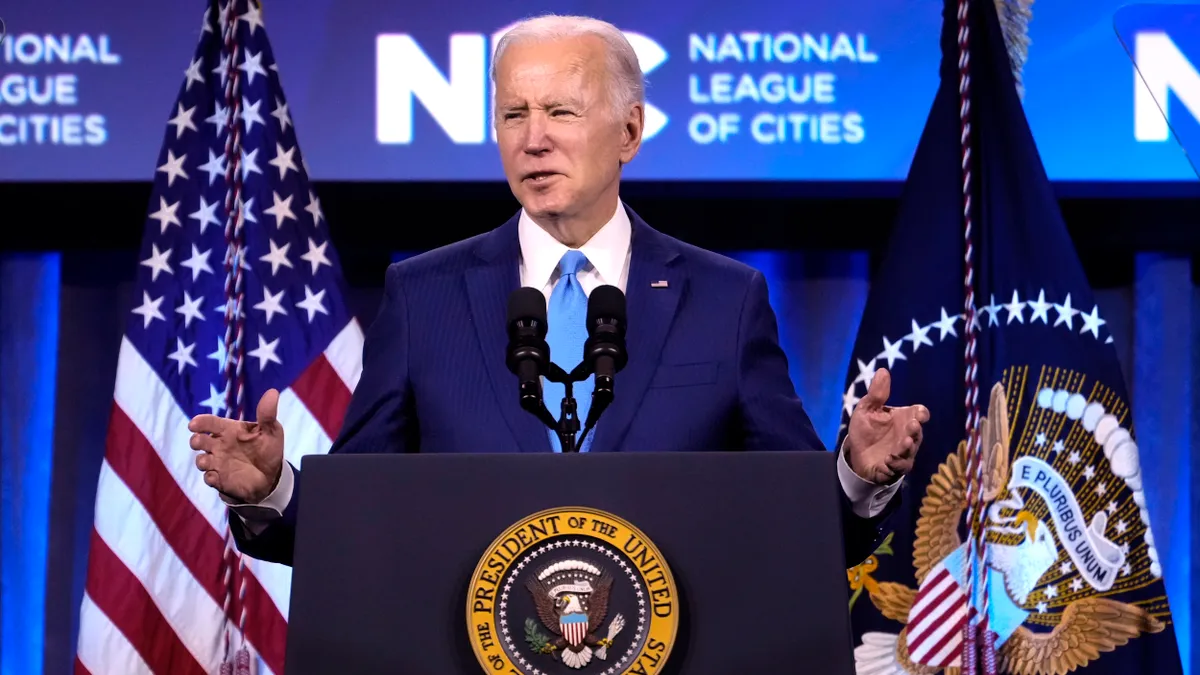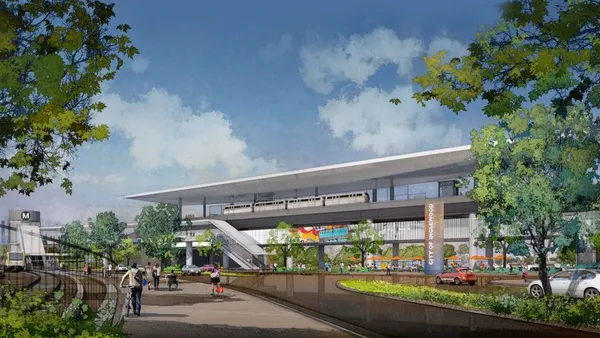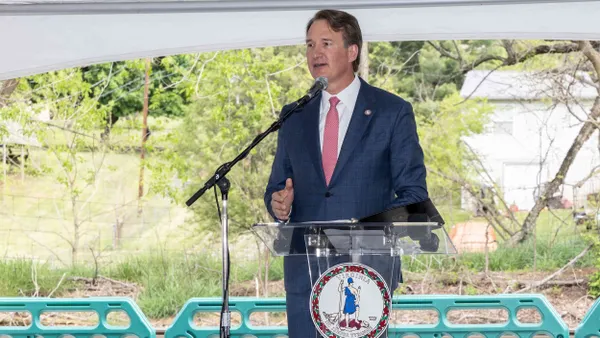WASHINGTON — President Joe Biden implored a large crowd of city, town and village leaders to spread the impact of funds provided by last year's American Rescue Plan Act (ARPA) and infrastructure law when he spoke at the National League of Cities' (NLC) Congressional City Conference Monday afternoon.
"We need your voices, the voices of local officials who understand what your communities need," said Biden, reminding the audience of his own roots in local government on the New Castle County Council in Delaware during the early 1970s. "City managers, mayors, councilpersons — when you have a problem, they’re knocking on your doors. That’s because their quality of life depends on you more than anyone else."
The ARPA legislation, which passed a year ago this month, contains $130 billion to be funneled directly through municipal and county governments. "As a former local official, I know that it matters having that flexibility and control to meet both the short-term and the long-term challenges you face," Biden said.
"We need your voices, the voices of local officials who understand what your communities need."

President Joe Biden
Biden noted that "hundreds of billions of new investments are on the way," pointing to newly announced investments in bus transit as one example. Transportation Secretary Pete Buttigieg, in conversation with NLC President Vince Williams, mayor of Union City, Georgia, spoke about how federal funds can transform transportation infrastructure. Buttigieg also spoke to transit agencies at an American Public Transportation Association conference earlier in the day, where he highlighted the Federal Transit Administration's Monday announcement of awarding approximately $409 million in grants to 70 projects in 39 states to "modernize and electrify America's buses, make bus systems and routes more reliable, and improve their safety."
When Williams noted how "cumbersome" it can be for small and midsized cities to access funds, Buttigieg said, "We get it. We're going to make it easier," and he described visions of a user-friendly, more efficient "Common App"-inspired interface for applying for grants.
Susan Rice, director of the U.S. Domestic Policy Council, spoke at the conference about threats to public health — rising gun crime, the mental health crisis, and the opioid epidemic — and how ARPA funds can help communities respond. "As we near the summer, when gun crime typically increases, I'd like to make an urgent plea: If you have already committed American Rescue Plan funding to reduce gun crime, consider doubling down," she said. "If you haven't yet, now is the time. And don't just commit funding; deploy those dollars swiftly, before the summer. We can save lives right now."
During an ARPA-themed panel with local leaders, New York City Mayor Eric Adams detailed his city's desire to leverage federal dollars for proactive purposes, particularly after years of heavily reactive spending in response to the COVID-19 crisis. Adams gave the example of focusing not just on lowering insulin prices, but also on preventing new or worsening cases of diabetes by providing healthier food in hospitals and elsewhere. "Just as soon as we open a fast-food restaurant, we open also a dialysis center," Adams said.
Adams also noted the opportunity for smaller communities to research and test solutions and assess their return on investment before scaling them among larger populations. "One of the big mistakes we make is that we look for solutions in big cities when we should be looking for solutions in small cities," he said.












